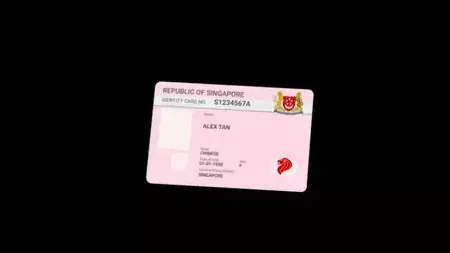A little known rule
“There is a general sense of hopelessness of never being legally recognised as their authentic selves, especially given the hoops they will have to jump through just to have a chance at having their gender marker changed” – Alexander Teh, a transgender man and Youth Worker from Oogachaga (LGBTQ+ NGO)
In Singapore, a little known rule profoundly shapes the lives of many people, including my own. Known by some as the legal gender recognition (LGR) rule, it’s an administrative rule governing how one’s gender marker can be changed from “F” to “M” or vice versa on legal documents like the National Registration Identity Card (NRIC) or passport.
Previously, a person had to undergo “a sex change procedure” and provide a letter from the surgeon confirming it’d been done. But, in 2017, the rule changed without prior consultation or warning, says Christopher Khor, one of the authors of the community survey. Now, a trans person’s genitalia must have been “completely changed from male/female to female/male genitalia”, and be confirmed by a genital examination by another doctor. It’s unclear why the rules changed, but the effect seems to be that people who need to change their gender marker must undergo more surgeries and an additional invasive process.
Many people, even within the LGBTQ+ community, are unaware of this rule and its related challenges. Leow Yangfa, Oogachaga’s Director, shares that some think “since post-surgery LGR is possible, so what’s the problem [for trans people]?” But they don’t understand “not every trans person is able or willing to access surgery”.
For one, it can be eye-wateringly expensive. Most of the surgeries aren’t even available in Singapore and aren’t covered by insurance plans. And there isn’t just one sex change surgery—multiple surgeries exist. For transmen, the new LGR requiring “complete” genitalia change might mean doing 5 distinct types of surgeries—and one can cost over $100,000.
The surgical risks can be severe and doing them leads to loss of reproductive ability. “This whole system [of LGR] is insane”, says Chris. At age 25, to avoid the discrimination he’d face due to his mismatched gender marker, he “felt like [he] was being forced into making a decision that [he] didn't want to make at this point in [his] life”—risking “major scarring and [the possibility of] losing the organ that is required of you to change your gender marker”.
It can feel like a catch-22 situation: without these expensive risky surgeries, a trans person can’t change their gender marker. But until they change their gender marker, they face greater obstacles in accumulating the resources needed for those surgeries.
